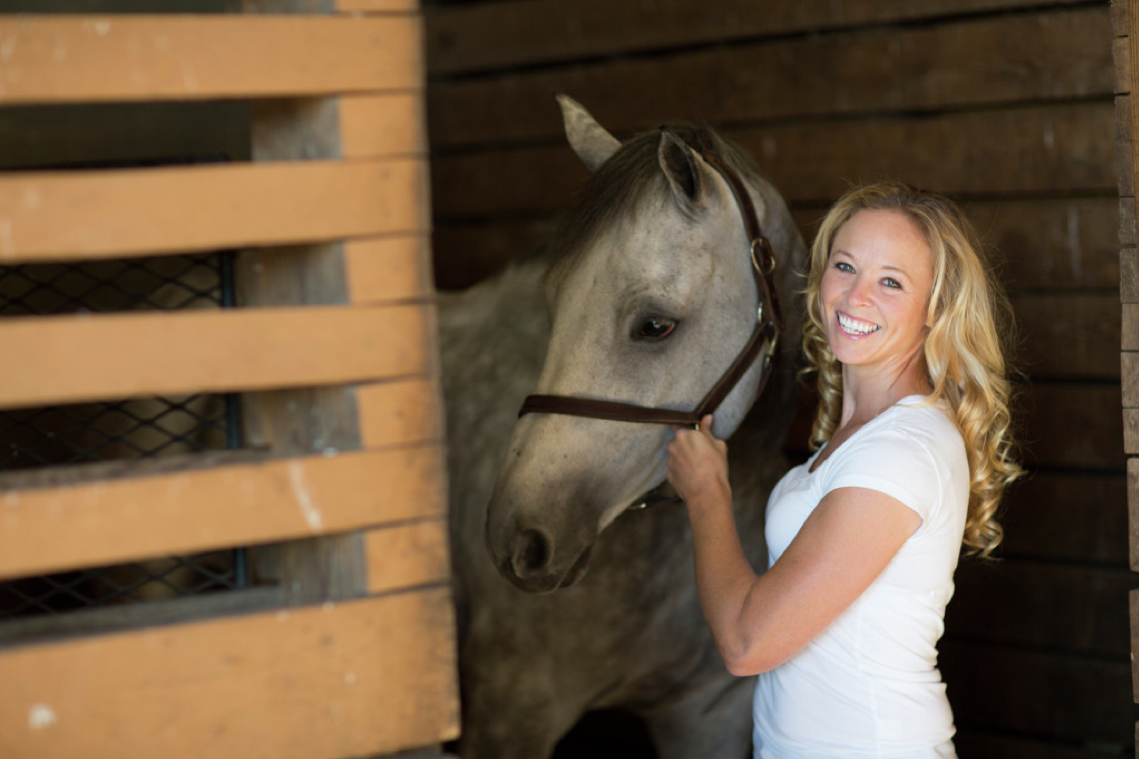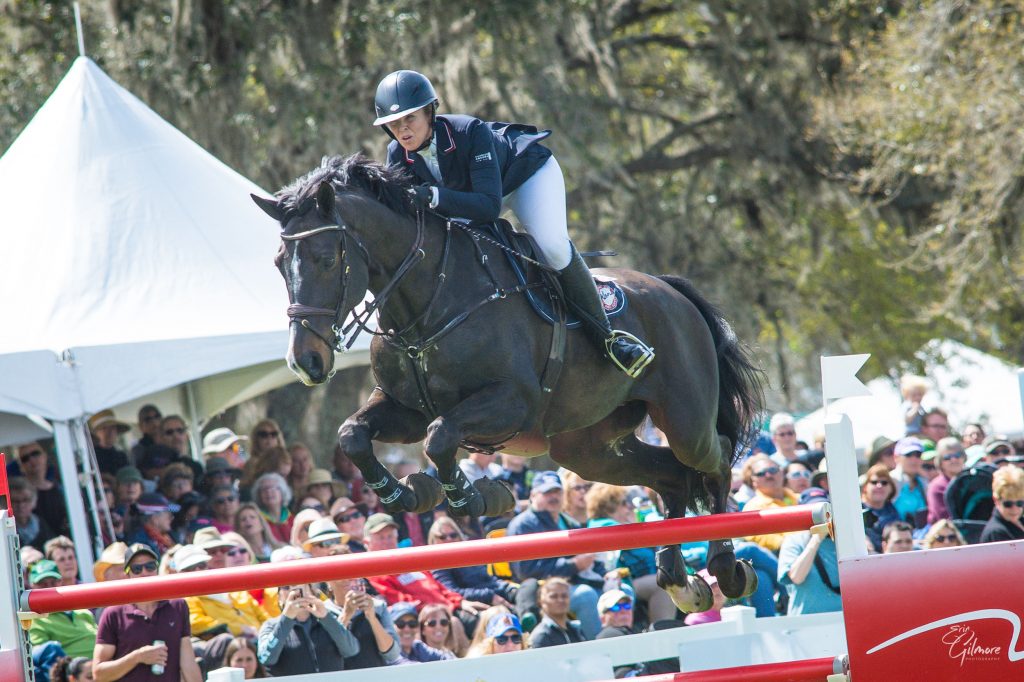I Like To Think Of This Setback As An Opportunity

Kama Godek is an international grand prix show jumper and trainer. After competing for over a decade in Europe she returned to the U.S. in 2012 and has helped some of the nation’s top juniors get experience entering the medal/maclay and jumper rings for the first time. In this op-ed, Kama explains what she hopes the equestrian industry can learn from the coronavirus pandemic.
Ironically, our team was sitting inside a restaurant organizing our spring and summer show seasons when we first heard President Trump announce the travel ban to Europe. I knew this meant the remainder of our Florida winter season would be coming to an abrupt end.
That was the moment for us when the pandemic’s reality hit home, and shortly thereafter the initial USEF press release came out with a 30-day show pause. Because my sister had been living in quarantine in Hong Kong since January, I made the rather drastic decision to give the horses a full two weeks out in the fields, assuming, like my sister, our break might be longer than the initial 30 days announced by USEF.
We are lucky to have an incredible home barn in the heart of horse country, so our initial plan of attack was to bring the horses back to Northern Virginia and let them have a little downtime after a very successful circuit. The spring weather couldn’t have been better with temperatures in the 60s and I was able to leave them out for the majority of the day, which is something they never get the opportunity to do in the summer or even in Florida. The horses earned the break, and it’s a silver lining in the cancellations that we were able to give them that.
While I’m trying to make the most of this pause in our usually busy schedule, I can’t deny that this pandemic is going to have a negative effect on the horse world’s economy. Horse shows, auctions, and even equestrian publications are going to take a hit. To succeed, all businesses need to be flexible and adapt. I am using this time to reflect on the equestrian world’s immediate and long-term business practices.
It’s necessary to be aware of the village it takes to get the horses in the ring, from the farriers, to the breeders, vets, trailer salesmen, feed delivery, braiders, haulers, and so on. For my own business to adapt, I had to create a list of needs and wants to double-check the necessity of all purchases. For example, since my horses will not be showing, I pushed back the farrier appointment one extra week. Do I really need an extra bag of carrots this week? The answer is probably not.

I’ve been in this business for over 20 years, including in Europe through the 2008 recession, but this is different. It is hard to get riders excited to buy another horse if we don’t know which date we will get back in the show ring. How will my business adjust? I’ve had an increased demand to take in training horses without riders, getting them fit and ready to go for when we can start up again. I have dropped my ship-in lesson fees to attract some of the local riders since I’m no longer on the road, therefore bending, flexing and adapting to the conditions in front of us.
Meanwhile, I’m seeing posts on social media about riders wanting to extend the season for juniors in their final year, and I’m disappointed by these suggestions. There are bigger issues to be focusing on at the moment, and my advice to juniors is to take it in stride. It takes a lot of hard work and a bit of luck to make it in the horse business, and this is a special moment that the world is uniting for. We are all making sacrifices for the good of our community, and there will be many opportunities to compete after you turn 18. It’s been a struggle for all riders, even Beezie Madden. She was likely headed to the Olympics this summer, yet sold her top horse because it was postponed.
Looking ahead, I’m very optimistic for what the “new normal” will become once we start to open up the economy and the horse business is on the run again. U.S. Equestrian now has this opportunity to reevaluate horse shows and make them more affordable and accessible. As an industry, we’ve forgotten about middle America. The sport is too expensive for people to join, and with the looming possibility of a global recession, there’s no better time to institute a change than now.
The immediate future and betterment of the industry requires an elimination of the mileage rule. As competitions need to reschedule their show dates, it almost seems natural for this rule to be absolved. This rule states there cannot be more than one rated horse show within a certain mileage radius happening at the same time. It varies by discipline, but in the jumpers, horse shows must be separated by 100 to 250 miles.
For decades now, the mileage rule has stifled the free market economy of showing for competitors by allowing show organizers preferred dates year after year. Absolving the rule will allow competition between the show organizers and will put the power back in the competitor’s hands, thereby encouraging shows to offer a more affordable and quality product. After all, a little competition never hurt anyone, it only encourages shows to try harder for their clients: the riders.
Uncertainty can be frightening, but change can be exciting. I am looking forward to seeing what comes next for our industry. Right now we’re all united in this uncertainty, disappointment, fear, and change together. It’s like predicting your result before you hear the start bell ring.
Photos by Erin Gilmore and Justine Ungaro


